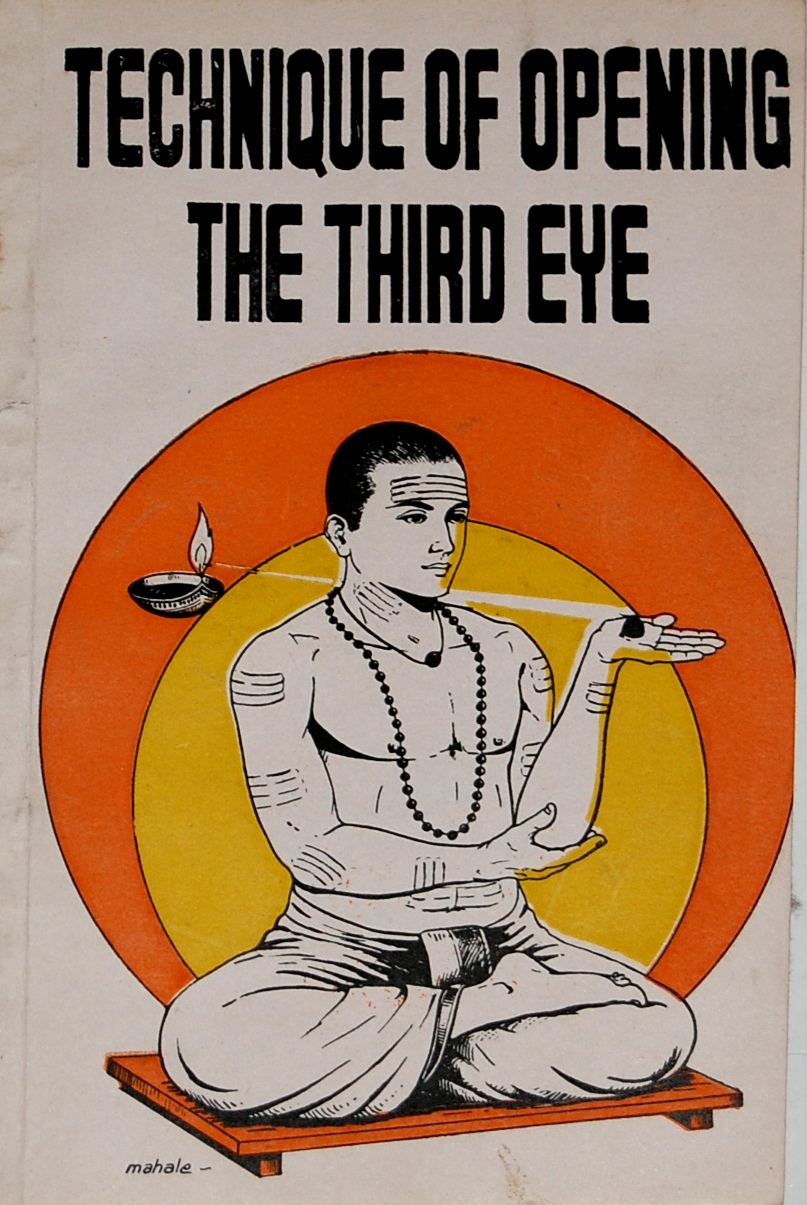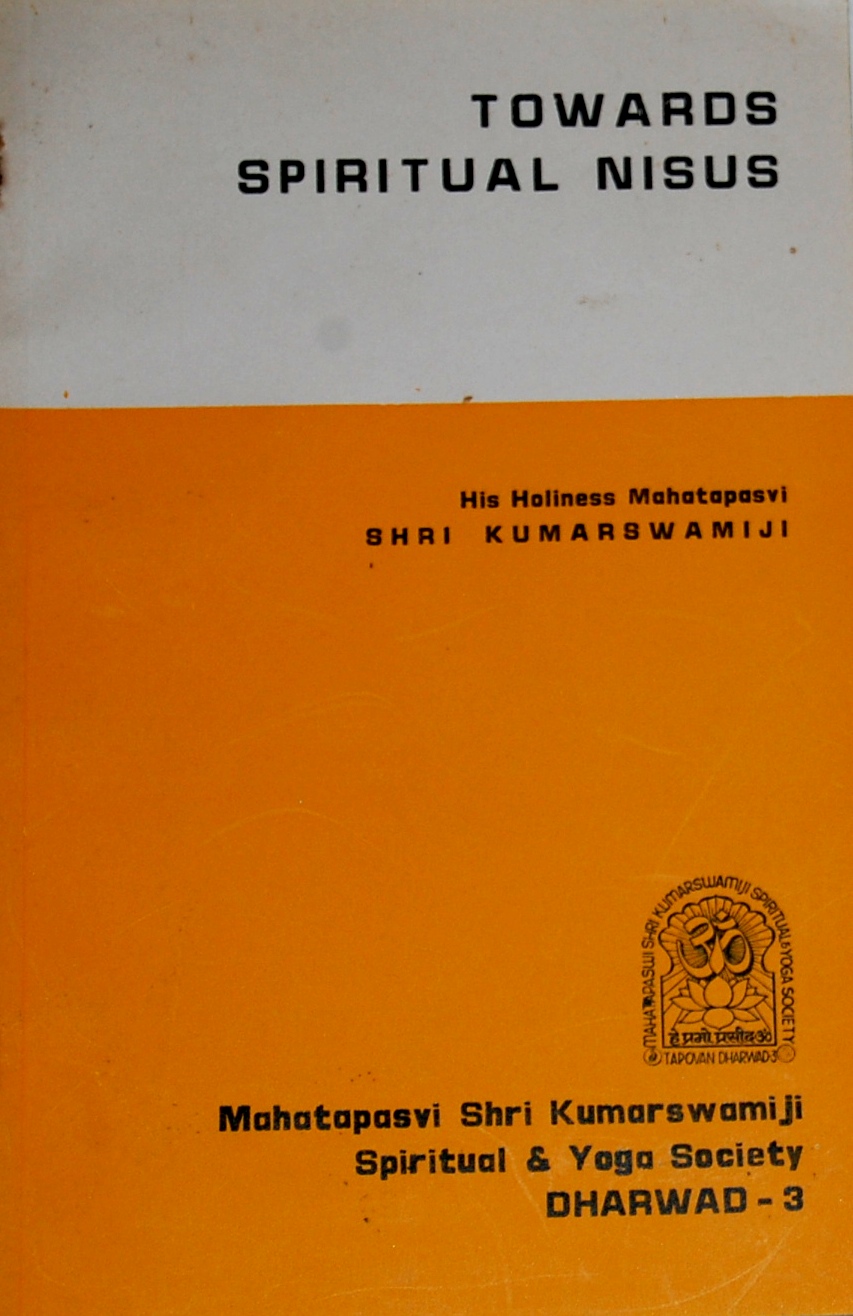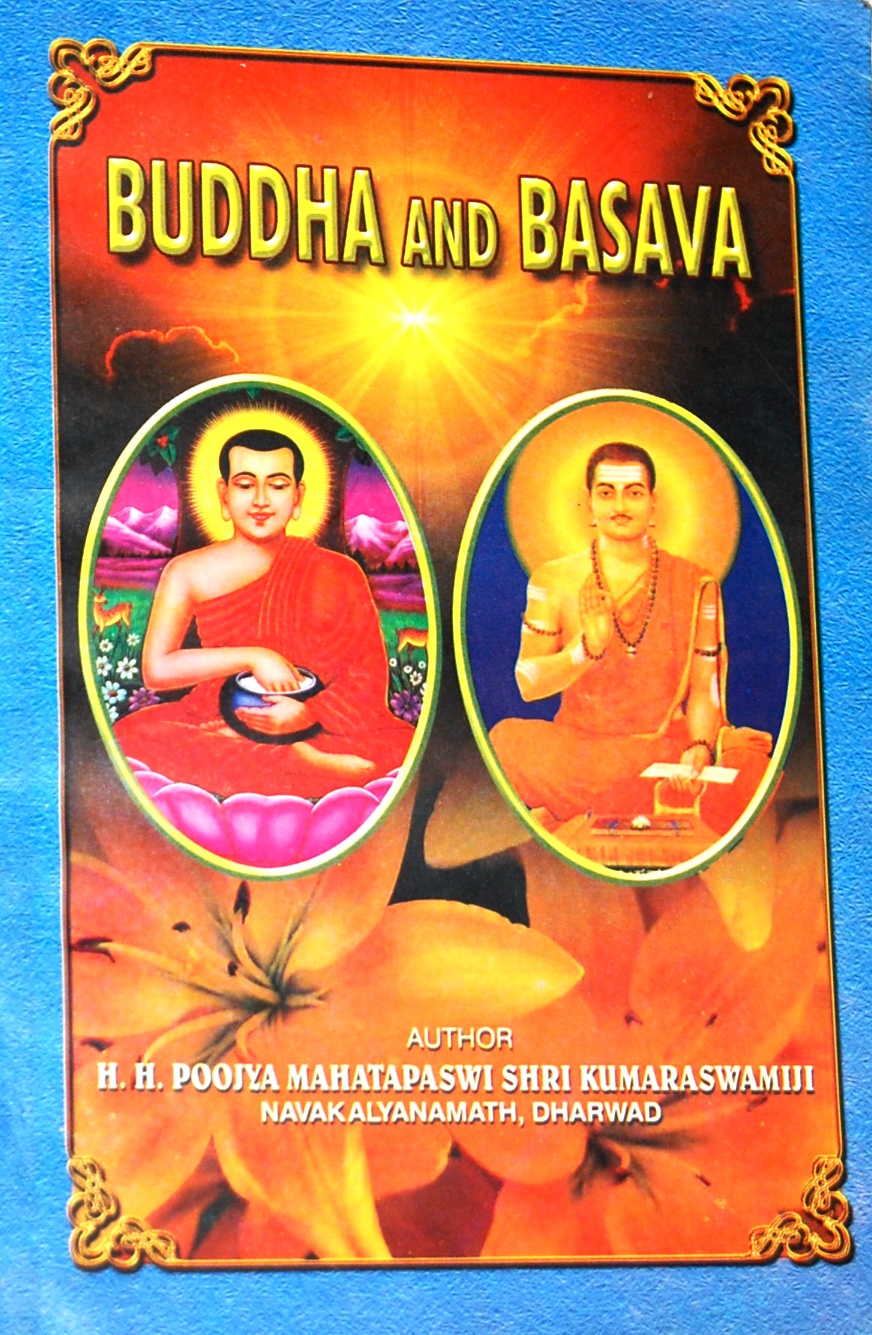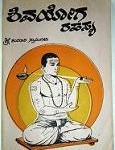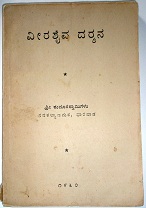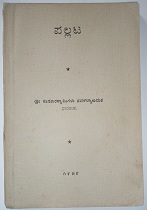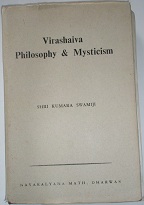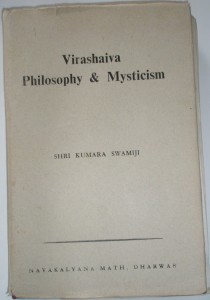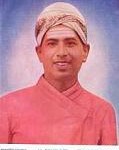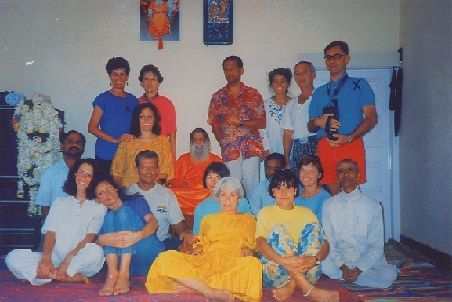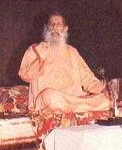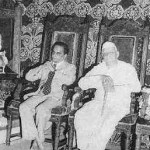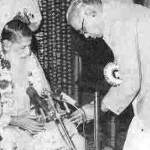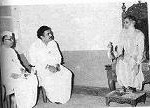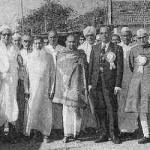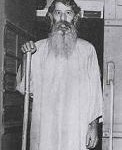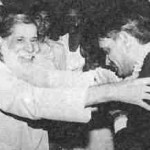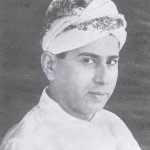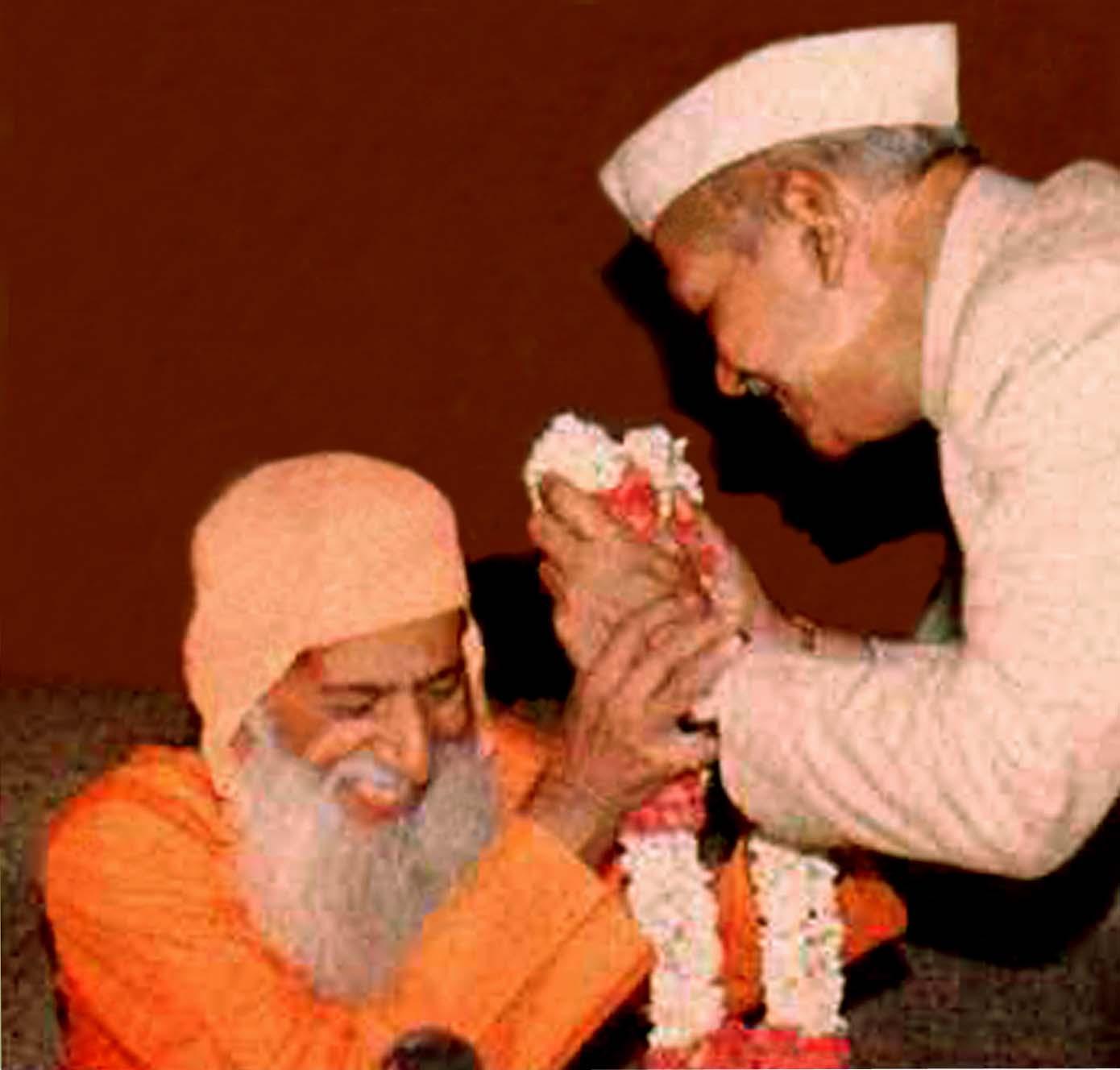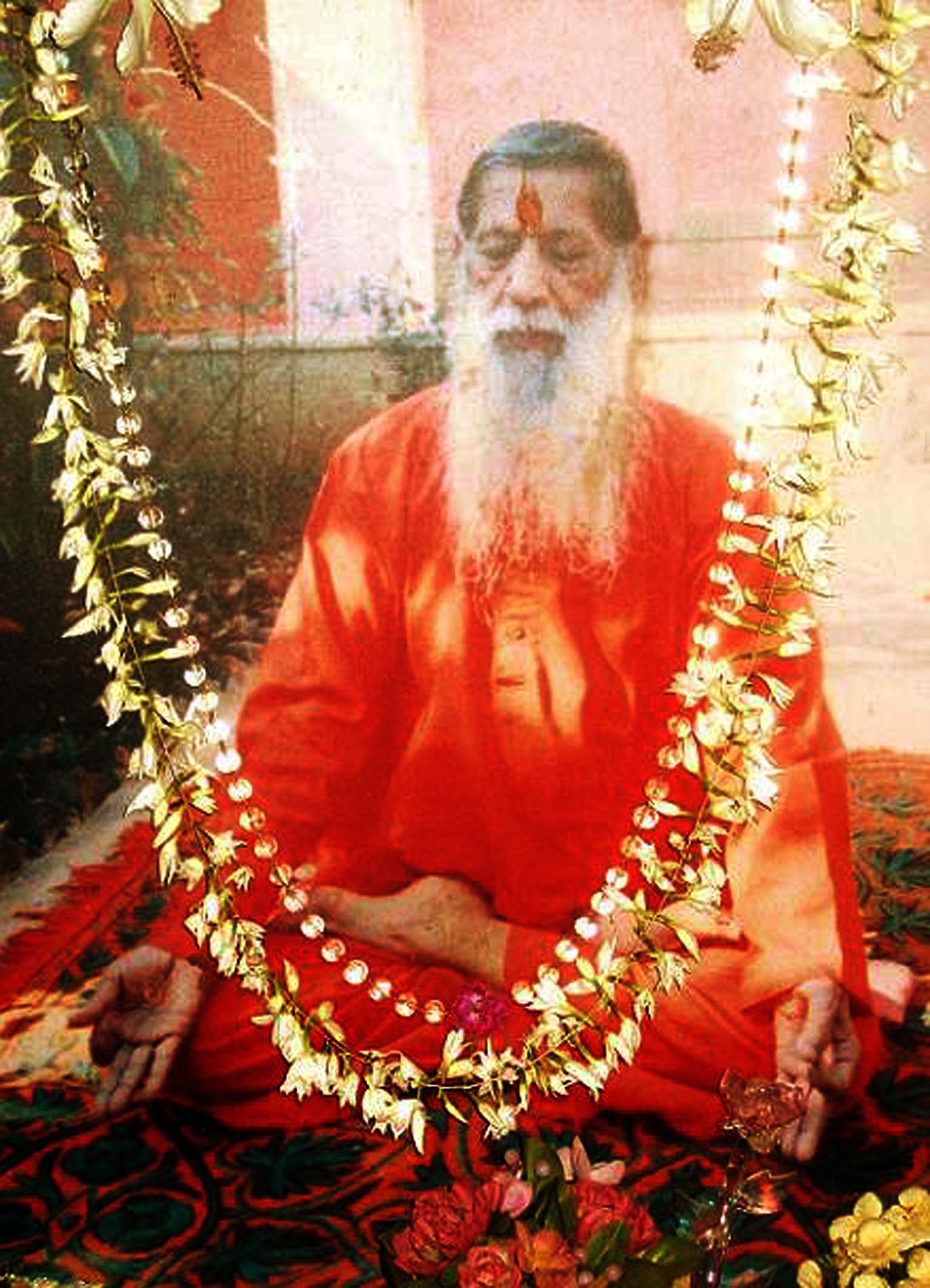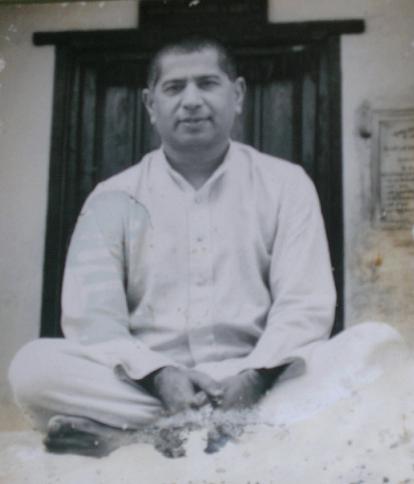‘Achara’ is proper conduct which is the perpetual revealing of man, for the integrity of man is to be measured not by his profession but by his achara and hence through his action. The moral man does not refer to one who has only the outward form or morality, appearing moral in the eyes of the world, but deep in his vices nor does it refer to him whose morality extends only to legal limits, nor do those who are proud of their morality, but to those who delight in purity, who are gracious, gentle and thoughtful, who being good at heart pour forth the fragrance of pure thoughts and good deeds. Such a moral man is termed Acharvanta or Lingavanta, for Achara is equated with Linga from the ethical point of view in Veerashaivism. There are five acharas (Panch-achara) known as Lingachara, Sadachara, Shiavachara, Brtyachara and Ganachara which prescribe the rules of morality for the members of the community.
Panchachara simply suggests –
Lingachara purifies the body,
Sadachara, the mind,
Shivachara, the property,
Ganachara, the behaviours,
Bhrtyachara, the speech.
— Sanganbasavanna
Achara means conduct, behaviour or attitude or manner of action towards others. Man, being a social animal, has to behave towards his fellow-beings with compassion, courtesy, empathy, love, and sympathy. Behaviour is, as it were, a mirror which reflects the man’s image. What is becoming in behavior is honorable, and what is unbecoming is dishonorable. Consciousness of inward knowledge gives confidence to the outward behavior, which is the best to grace man in his actions. Man is not only the social animal but the self-determining intelligent animal, above all others. Ultimate clues is to his actions must be sought within himself, whatever the behaviorist may say. A behaviorist philosophy which would explain life exclusively in terms of matter and motion is neither physical science gone astray nor it is sheer shallowness of education. At all events the human universe will be viewed, as if, its center was human mind; but the sources of human character will be examined as it realizes itself in and through human conduct.
Modern behaviorism is not only psychology without a soul; it is psychology without either mind or consciousness. It proposes that the consideration of psychologists should be limited to external and observable behavior, and then proceeds to explain behavior in a strictly deterministic manner, in the light of the principle of contiguous association. According to this theory, all forms of behavior in animals, all kinds of human conduct, no matter how socially desirable or morally exalted, are conceived as built upon the foundation of a few native reflexes inherited by all the members of the species. Like any other animal, man starts life with a limited equipment of unlearned reaction-patterns to external stimuli; and upon these are grafted an immense number of other behavior patterns which make up his learned equipment to explain the activation of reaction-patterns by stimuli other than those which originally called them into action. The behaviorist uses the principle of the conditioned reflex. All complex behavior is explanation by environmental conditioning which results in the function of habits as physiologically inherited and mechanizing themselves. The concept of instinct is not needed to explain behavior, neither is the conception of thought nor consciousness. Behaviorism is not at present maintained, however, in its exclusive and rigid form, as outlined above. Both consciousness and thought have been reintroduced into more moderate behaviorism. While the general bias of behaviorism is towards a physiological explanation of mental contents, its original formulation has been greatly modified.
Achara is proper conduct which is the perpetual revealing of man, for the integrity of man is to be measured not by his profession but by his achara and hence through his action. The voice of Achara is, “obey the right and wrong shall never assail thy peace.” It has been stated that “the way to hell is paved through good intentions” and one frequently hears sin excused on the ground that it has been committed with a good motive. But there are actions which are bad in themselves and there are actions which are good-in-themselves; good intentions cannot make the former good and bad intentions cannot make the latter bad. Foremost among actions which are bad in themselves are those that are classified as criminal by all civilized communities. Thus murder, theft, adultery, libel etc are always bad, and it is not necessary to inquire into the motive which prompts them. This does not mean that motive is secondary; motive is all important for it determines the nature of act. Men are more accountable for their motives that for anything else, for motives primarily govern morality. But we must distinguish between intentions and motives. When people speak of good and bad motives, they nearly mean good or bad intentions, that is, the action is done with a certain objective, good or bad in view. Motive is the deeply seated cause in the mind, the habitual condition of the heart; the intention is the purpose in view. Thus an act may spring from an impure motive yet be done with the bad intention. No one doubts that Caesar was murdered by twenty-four conspirators with their self-proclaimed good motive, but one doubts very much whether their love of liberty was the sole cause. An action should not be esteemed great and good unless it is accompanied by a good and righteous motive.
Intentions are more or less superficial and are largely matters of impulse, while motives are more deeply seated and are concerned with man’s moral condition. A man may commit an action today with a good intention, and in a few weeks time, does the same action mean the same? In fact a wrong act cannot spring from a right motive, although it may be guided by good intentions. This is why the great teachers of the world rarely refer to motives, but always refers to actions. In their precepts they tell us which actions are bad and which are good without any reference to intention. It will be found that bad actions in majority of instances are accompanied with good intentions. But such a man’s good intention is frustrated by his bad action, and he at last only succeeds in separating himself from all truth-loving people. It greatly simplifies life and solves most of the complex problems of conduct, when certain actions are recognized as always bad, and others as always good; the bad are for ever abandoned and a final refuge is taken in the good.
It is indeed an indication of decadence, in spiritual matters to sever morality from religion. “He is a highly moral man, but he is not religious”: “He is exceptionally good and virtuous, but is not at all spiritual”: are common expressions among a large number of people who regard religion as something quite distinct from goodness, purity and righteousness. If religion be regarded merely as worship combined with adherence to a particular form of faith, then it would be correct to say. “He is a very good man but is no religious in some instances just as it would be equally correct to say, “He is an immoral man but is very religious” in other instances, for murderers, thieves and other evil-doers like thugs are sometimes devout worshippers and zealous adherents to a creed. Such a narrowing down of religion would render much of the ethics superfluous and would lead to the confounding of the means of religion with its end. Religion has a broader significance and the most obscure creed embodies in its ritual a secret longing of the human heart for the Infinite. In religion, as in other things, there are the means and the end, the methods and the attainment. Worship, beliefs about God, adherence to creeds are some of the means; goodness, virtue and righteousness are the end. The methods are many and various and they are embodiments of countless forms of faith, but the end is one; it is the moral grandeur, it is spiritual communion. Thus a moral man with morals, far from being irreligious, possesses the substance of religion, diffuses its spirit and achieves his spiritual end. When the sweet kernel of religion is found and enjoyed, the shell has served its purpose and may be dispensed off. The moral man does not refer to one who has only the outward form or morality, appearing moral in the eyes of the world, but deep in his vices nor does it refer to him whose morality extends only to legal limits, nor do those who are proud of their morality, but to those who delight in purity, who are gracious, gentle and thoughtful, who being good at heart pour forth the fragrance of pure thoughts and good deeds.
Such a moral man is termed Acharvanta or Lingavanta, for Achara is equated with Linga from the ethical point of view in Veerashaivism. There are five acharas known as Lingachara, Sadachara, Shiavachara, Brtyachara and Ganachara which prescribe the rules of morality for the members of the community.
Lingachara: Lingahcara requires that every Lingayata or Veerashaiva should worship Shiva in the form of Ishtalinga which he always wears upon his body. The worship of Ishtalinga twice a day is the beginning of daily observances. The wearing of Linga was not universal amongst the Shaivas before Basava; he however made wearing the Linga universal. It was with the object of bringing home to its wearer, the fact that the Divine resides within him, in his own body he suggested that a Veerashaiva must always wear a Linga on his person. The Divine is not to be sought in caves and temples nor in sacred centers and places of pilgrimage. As one is apt to lose sight of this fact, Basava enjoined that every one should wear it in order that it may serve as a constant reminder of the Holy presence within himself. Prayers and contemplation grow into the worship of the higher modification of Shiva. Ishtalinga is the godhead to which the devotee should remain faithful. Lingachara is designed to develop the values of the character in the devotee. This prepares the devotee fit and suitable for the reception of moral values which condition the existence and welfare of society. The values of the character are discipline, self-restraint, respect for law, limitation of desires and willing cooperation. The practice of these virtues has now become urgent and imperative. We can understand why loyalty to the great cause has been advocated by distinguished philosophers as one of the supreme values. This will help us to understand the importance of Lingachara in Veerashaiva ethics.
Sadachara: Sadachara requires that a Lingayat should follow a vocation and lead strictly a moral righteous and virtuous life. He should earn money by following his vocation faithfully for his livelihood and for supporting his family. If a community has to be self-sufficient, everyone, irrespective of social status and distinction should be prepared to contribute his share of work, manual or intellectual, as long as work is necessary for the maintenance and development of the community. Basava not only advocated industry or manual labour as essential to the economic life of society, but he succeeded to a large extent in putting it into practice. Basava himself has stated that he served the King so that he could support the Jangama-dasoha. He used the term Kayaka to describe the concept of “work is worship”. He insisted that every person must pursue some profession in order to earn his livelihood, and that pursuit of any occupation like carpentry, weaving, farming etc�, so long as it was moral and necessary for society, was as sacred and as obligatory as the worship of God. In fact, he said that a Veerashaiva can afford to forgo worshipping when his Kayak does not permit him. The propagation of this principle in the community gave a great impetus hence it removed the curse of idleness from the community. It was the considered opinion of Basava that even the Jangama, who had renounced all worldly attachments, should engage themselves in some useful industry or other form of worm, instead of being a burden on society by indulging in begging and living of off the sweat of others.
In psychology, we study human behaviour. In ethics, we study it only from a different point of view, namely that of approval or disapproval. In ethics we seem to be enquiring no longer about the truth of things but about their worth or goodness; more particularly about the worth and goodness of human actions. Look at the advice Basava prescribes a simple code of ethics to a Sadachara: “steal not, kill not, speak not untruth. Be not angry, show not contempt to others, do not pride upon thy virtues. Do not speak ill of others, this is the way to internal purity, this is the way to external purity. This then the way to win the favour of God.”
Shivachara: Shivachara enjoins upon a Lingavanta strict monotheism, that is, the worship of one and only one God namely, Shiva in the form of Ishtalinga. The devotee has to maintain through-out his life, the faith and belief that Shiva is the only godhead as the object of Upasana to the exclusion of other deities. Whatever devotional actions he performs, prayers he offers, and thoughts he develops, they must be done in the spirit of dedication to Shiva. By Shivachara, the members are required to make no difference between one Lingayata and another, but should take all to be equal. He should inter-dine and inter-marry with other Lingayatas. Always good conduct must influence the affairs of life. Basava exemplifies the characteristics of this Shivachara in this saying: “Does not the crow call its members at the sight of a morsel of food? Does not the cock call its kith and kin at the sight of few grains?” A devotee of Shiva who has no such feeling, is worse than the cock and the crow.”
Basava no doubt rightly laid emphasis on equality and egalitarian way of life. But the problem was, how best to bring about such equality in society. Obviously, the followers must all behave like members of a common fraternity. In a fraternity of this type, there can be no room for invidious distinctions and barriers that divide one man from another. Consequently, it would be wrong to take caste into account in the matter of meals and marriage. With this goal in view, Basava advocated that all persons after initiation should sink their differences and forget caste consciousness. The initiated, who observe the tenets of Veerashavisim belong to one fraternity. They should cast off all pride of birth, for a devotee who has renounced his caste of birth, there is no further caste. Remember that Shiriyala is no Vaishya, Machayya is no washerman, Kakkayya is no cobbler and Ketayya is no basket maker, they are all devotees of Shiva. By taking various instances Basava proved that character is more fundamental than caste. Instances abound in history of persons, who, though hailing from the so called low castes, have risen to occupy the highest positions in the community by virtue of their sterling character and qualities. Shivachara is a strong pointer to such people who have all along been the natural leaders of thought and religion.
Bhryatachara: Bhrtyachara is the devotee’s attitude of humility towards Shiva and his devotees. Basava was a living example of humility and modesty. Mark his words, “There is none lower than me�..” He has to maintain the attitude of humility towards his Guru, who gives him guidance in religious practices; towards the Jangama who provides guidance in spiritual discipline and towards the Sharanas who are the spiritual associates. In short, the attitude of a Lingayata in social behaviour and intercourse should be one of humility, modesty and respect for others, so also he should be kind to all animals and treat them kindly. This is Bhrtyachara, the conduct of a Lingayata as a servant of the society and as a friend of all animals. Basava condemned animal sacrifice and has expressed pity for the animals thus, “a fisherman takes delight in catching fish and killing them, why does he not take pity on them, as he does for the death of his own child? Is not that man worse than a butcher who being a devotee of Shiva yet torches animals?” Basava therefore laid down a precept that compassion towards all living beings is the foundation of all religions.
To be one with God is better than mere friendship or sight of God. By oneness is meant a state wherein a person orders his life in this world in perfect accord with the will of God. A true Bhryatachari is he who has unified his will with the will of God. A person, who, while performing action according to the will of God surrenders the fruit thereof to Him and lives in a state of joy, is said to have attained true humility. The attitude of a person in which he sincerely believes that everything belongs to and is done to the satisfaction of God is true dedication. A Bhratyachari is a living model of such a single minded dedication.
Ganachara: Lastly Ganachara is the behaviour towards the community as a whole. He should not tolerate scandal of the Godhead and ill treatment of men and animals by others. As a member of the community, he has to strive for its uplifting and development. Truth and non-violence are the ideals upon which the society should be built. Though truth and non-violence are holy as theories, Basava gave them a practical turn to achieve social and moral good. Ganachara enjoins that we should achieve good through non-violence and truthful means. One has to fight injustice but that fight must be nonviolent and truthful.
Ganachara is in fact the spirit of vindication. It asserts that a devotee should not believe in omens, in false dreams and astrology, for the belief in these things weakens the power of Will. It is the height of folly to allow all such meaningless considerations to come in the way of one’s discharge of duties. It inculcates in the devotee a warrior spirit to wage merciless war against grave moral offenses like adultery, covetousness, slander, theft, falsehood, idleness etc. Basava knew how hard it was for the individual to be perfect in society that itself was imperfect. He, therefore, tried to create all the facilities that were favorable to him to lead a life of purity and virtue by raising the general standard of morality of the society of which the individual is a part. It was his aim to build a society dominated by such ideals as equality, fraternity and liberty.
The concept of the moral standard as adumbrated by Panchachara involves “heteronomy” which serves to dictate rules for moral conduct. Heteronomy refers to those who are better situated morally than ordinary men as dictating to them the principle of conduct for their own behalf. Not without reason did Basava think that the opinion of Guru and Jangama or of men of trained character should count as the principle of moral authority in cases when one is in doubt to choose the way of moral action for him. It is an undoubted fact that the lives of great men will have a profound influence upon their generation, because it is an instinct with the average man to follow the examples of the great men. On close scrutiny, it is found that even the opinion of the society or state is based upon the maxims of conduct which are supplied to them by wise men. Another moral standard which Prabhu upholds is autonomy which, according to him, supplies the true principle of moral conduct. It is neither the society, nor the state, nor even God that can give us the essential rule for moral conduct. It must spring from the soul within.
Broadly speaking there are two moral ideals – one the hedonistic and the other anti-hedonistic: pessimism, asceticism, quitism and eudaemonism are simply the byproducts either of one or the other ideal. In its simple form hedonism is the doctrine which holds that pleasure is the highest good. A Greek philosopher named Aristippus first proposed the view that pleasure is the highest good. From Aristippus, a disciple of Socrates, down to the present times, the definition of hedonism has undergone many changes; still the essence remains the same. The doctrine of anti-hedonism maintains that not pleasure but virtue or knowledge is the highest good. Ethical philosophers range themselves as partisans of either one or the other. Even in the Upanishadic days we have a classical expression of the conflict between pleasure and virtue. Kathopanishad says that “there are two different paths, the path of the good and the path of the pleasures and that these two diverse paths try to seduce a man each to itself. Of these he who follows the path of the good is ultimately rewarded by the fulfillment of his aim, while he who follows the path of pleasures loses the goal which he is pursuing. When the good and the pleasures present themselves before man, he looks about him if he be wise, and decides which of them to choose. The wise man chooses the good before the pleasure, while the fool chooses the pleasures before the good.” This conflict also confronted Hercules in Kenophon, where the two maidens, pleasure and virtue present themselves before Hercules with their several seductions and Hercules chooses virtue. The choice of Hercules coincides with choice of Nachiketa.
Veerashaiva, as an ethical philosophy, does not visualize an incurable antimony between pleasure and virtue, between happiness and knowledge. It effects a synthesis by saying that the art of living wisely, involves the art of living happily, for wisdom is not incompatible with true happiness. For the Veerashaiva saint happiness is an inner condition or state of tranquility, which depends on the harmony of the soul. Goodness or morality is not only a matter of action, but also a matter of desire. So he says, “you can tell the man who rings true from the man who rings false not by his deeds alone but by his desires also.” For Prabhu, like Spinoza, the greatest good is the knowledge of the union, which the mind has with the whole of nature. “The more the mind knows, the better it understands its forces and the order of nature; the more it itself and lay down the rules for itself, and the more it understands the order of nature, the more easily it will be able to obliterate itself from useless things.” These words of Spinoza remind us of the stoic attitude which maintains that knowledge is power and freedom, and the only permanent happiness is the pursuit of knowledge and the joy of understanding. However, the philosopher or the saint must remain a man and a citizen; his mode of life must conform to a simple rule of conduct; to enjoy such pleasures as are necessary for the preservation of health, to seek only enough money as is necessary for the maintenance of life and health, to comply with customs as are not opposed to what one seeks. As a part of its ethics, Veerashaivism advocates the philosophy of happiness and knowledge, of pleasure and virtue.
Renunciation plays a great part in Indian ethics. Renunciation means “Tyaga”. But renunciation is intended as the giving up of desire and ego and not a renunciation of worldly existence. In the words of Basava, Tyaga means the renunciation of something of lower value for something of higher value. The West has deified lower activity; it ascribes the highest grade to interested action and the lowest rank to concentration of thought. Hence, there is no spirit of yoga or control, no sense of detachment or disinterestedness in its activity. One acts primarily for the sake of immediate result of action, or because of love of activity as such. This is perhaps the secret of the West’s bondage to the world and its values. On the other hand, Karmayoga represents the spirit of the renunciation in action and the lotus flower symbolizes the spirit. Although the lotus (a flower that grows in muddy water) comes to birth in contact with mud and water, however, it is not stained by either of them. It is this spirit of detachment that the Karamayoga stresses. From, this spirit of Karmayoga springs an attitude of middle path or golden mean or moderation. According to the golden means the best life is one of contentment and that the best means is to avoid anything that can bring discontent. There is no place for the extremes. But this is in sharp contrast to what the West calls perfectionism. The West has tended strongly to follow Plato and Aristotle in the attitude of living fully, of developing perfectionism in the sense of the full actualization of one’s potentiality. Living is the primary requisite; living fully is the ideal. The attitude of sacrificing fullness of life for mere contentment is seen in Socrates, in the Stoics and in Epicurus. But this is not prominent in the main stream of Western ethics.
The contentment of the East has been much misunderstood by the West. It is not fatalism, indifference or an attitude of inactivity. It is not a running away from life in any extreme sense. To one who is dominated by the attitude of striving on and on towards some unattainable goal, this philosophy of moderation seems weak and cowardly but it is not so. It simply avoids excess in the direction of striving for a goal which is always beyond one’s reach. Socrates said, “Contentment is natural wealth, luxury is artificial poverty.” Contentment does not mean contentment with anything, it does not exclude moderate effort, nor does it mean blind acceptance of faith, but it means a happy state of mind in which one can say, “I have enough.” The philosophy of contentment is merely a common sense protest against the inevitable unsuccessful philosophy of life, which seeks but can not find happiness in continued and excessive striving for perfection in some worldly sense. The philosophy of perfectionism has produced what the West calls progress; but has also produced uncertainty, insecurity and complete absence of peace of mind. What is it that man is seeking after all? Is it peace of mind? Yes, it is peace of mind and contentment brings peace. True contentment depends not upon what we have, but upon what we are; a tub was large enough for Diogenes but the world was too little for Alexander. The good life consists neither in mere action or power nor in the elimination of either but in directing man’s activities towards an acceptable human goal which is spiritual tranquility or contentment.
Directing man’s activities towards an acceptable goal is the function of will. The highest good, according to Veerashaivism is the freedom and purity of Will. (Shuddha Sankalpa). Kant also affirms that the only absolutely good thing in the universe is the human will governed by respect for the moral law or the consciousness of duty. A moral act is one which is done out of respect for moral law rather than for selfish gain or sympathy for others. Veerashaivism bases its ethical theory upon the idea of moral nature in man which has the right to make certain definite demands. This moral law implies the existence of a moral world order in which man can trust. Mere respect for the moral law is not enough but he must act according to it. Goodness or morality is not therefore a state to be attained all at once, but it is a continuous struggle of the intelligent individual to act in every situation so as to meet the requirement of the moral law. This needs a determined will. The purpose of Panchachara is to develop this freedom and purity of Will in the members of the community.
– OM SHANTI | OM SHANTI | OM SHANTIHI –
This article ‘Pancha-achara’ is taken from H.H.Mahatapasvi Shri Kumarswamiji’s book, ‘Veerashaivism: History and Fundamental Concepts’.








